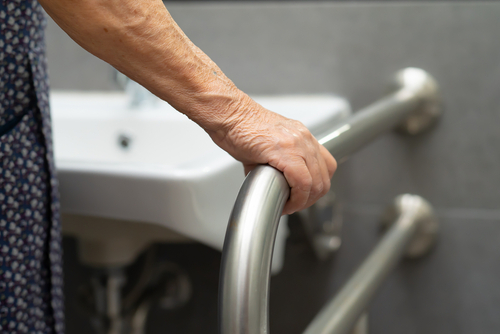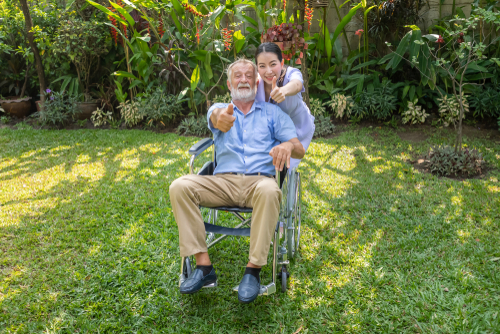
How to Prevent Falls in the Home by the Elderly?
February 24, 2023
The Benefits of Exercise in Elderly Home Care
April 17, 2023Training Your Maid to Provide Excellent Elderly Care (Comprehensive Guide)
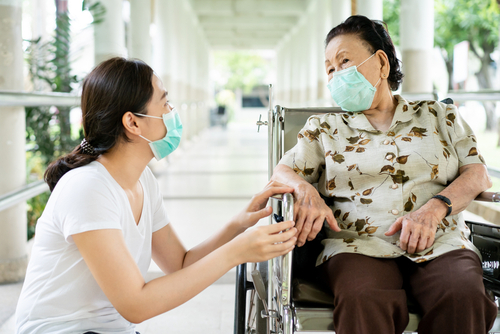
Training Your Maid to Provide Excellent Elderly Care
A Comprehensive Guide On Training Your Maid to Provide Excellent Elderly Care
Introduction:
As the aging population in Singapore continues to grow, many families face the challenge of providing care for their elderly loved ones. Employing a maid to assist with elderly care is a practical solution for many households, offering companionship and help with daily tasks. However, proper training is crucial to ensure that your maid is equipped to provide the best possible care for your elderly family members. This article will explore the steps to effectively train your maid for elderly care, ensuring a safe, comfortable, and nurturing environment.
Understand Your Elderly Family Member’s Needs
Before training your maid, you should assess the specific needs of your elderly loved one. This includes their medical conditions, physical limitations, dietary needs, and personal preferences. By understanding these details, you can customize the training to address the unique challenges of elderly care.
Clearly Define Responsibilities
Make sure your maid is aware of their duties when caring for your elderly family member. Explain the tasks they will be responsible for, such as meal preparation, medication management, and personal hygiene assistance. Encourage open communication and ensure your maid feels comfortable asking questions or seeking clarification.
Offer Basic Elderly Care Training
Your maid should receive basic training in elderly care before working with your elderly loved one. This includes personal hygiene, mobility assistance, nutrition, and first aid. You may consider enrolling your maid in a training course or providing them with educational resources to enhance their knowledge of elderly care.
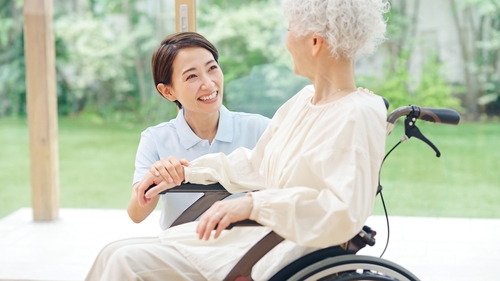
Prepare Your Part Time Maid for Emergencies
Emergencies can occur, and your full-time maid or part-time maid must know how to handle them. Teach them emergency procedures, such as actions to take in case of a fall, recognizing signs of a stroke or heart attack, and performing CPR. Ensure that your maid has contact information for emergency services and family members, and feels confident using these resources when needed.
Inform Your Maid About Medical Conditions
If your elderly family member has specific medical conditions, such as diabetes, dementia, or arthritis, your maid must understand them and their impact on daily care. Provide information about managing symptoms, administering medication, and any specialized care requirements related to these conditions.
Promote Patience and Empathy
Caring for the elderly can be demanding and requires great patience and empathy. Encourage your maid to empathize with your elderly loved one, understanding their emotions and perspectives. This will help your maid develop a compassionate and caring approach to elderly care.
Teach Your Part Time Maid to Facilitate Meaningful Activities
Engaging your elderly loved one in meaningful activities can greatly improve their quality of life. Instruct your maid on organizing activities such as games, puzzles, or light exercises to keep your loved one mentally and physically active. Encourage your maid to learn about your elderly family member’s interests and preferences and adapt activities accordingly.
Enhance Communication Skills
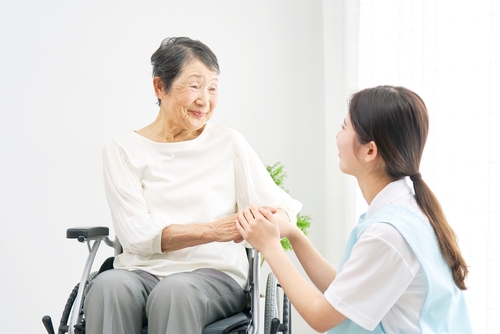
Effective communication is crucial for providing quality elderly care. Teach your maid how to communicate with your elderly loved one, especially if they have hearing or cognitive impairments. Encourage your part time maid to speak clearly and slowly, use simple language, and maintain eye contact during conversations.
Create a Consistent Routine
Establishing a daily routine can provide a sense of stability and comfort for your elderly loved one. Collaborate with your maid to develop a routine that includes regular meal times, medication schedules, and activities. This will help your maid manage their time effectively and ensure all tasks are completed as needed.
Evaluate and Adjust Training
Periodically assess your maid’s performance and offer feedback to help them improve their elderly care skills. Be open to adjusting the training based on your elderly loved one’s changing needs or your maid’s areas for improvement. Maintain open communication with your maid to ensure they feel supported and empowered.
Cultivate a Respectful Relationship
It is important to cultivate a respectful relationship between your maid and your elderly loved one. Encourage your maid to treat your loved one with dignity and respect, considering their personal preferences and cultural background. This will help create a positive, supportive environment for both your elderly family member and your maid.
Encourage Self-Care for Your Maid
Caring for the elderly can be emotionally and physically demanding. Encourage your maid to practice self-care and take breaks when needed. This will help them maintain their well-being and ensure they can provide the best care for their elderly loved ones.
Conclusion:
Training your maid to provide excellent care for your elderly family member is a critical process that requires patience, understanding, and a commitment to ongoing education. By following these steps, you can equip your maid with the skills and knowledge necessary to provide compassionate and effective care for your elderly loved one. Remember to understand your loved one’s needs, clearly define responsibilities, offer basic elderly care training, prepare your maid for emergencies, inform them about medical conditions, promote patience and empathy, teach them to facilitate meaningful activities, enhance communication skills, create a consistent routine, evaluate and adjust training, cultivate a respectful relationship, and encourage self-care for your maid. With proper training and support, your maid can become a valuable asset in ensuring the well-being and comfort of your elderly family member.

